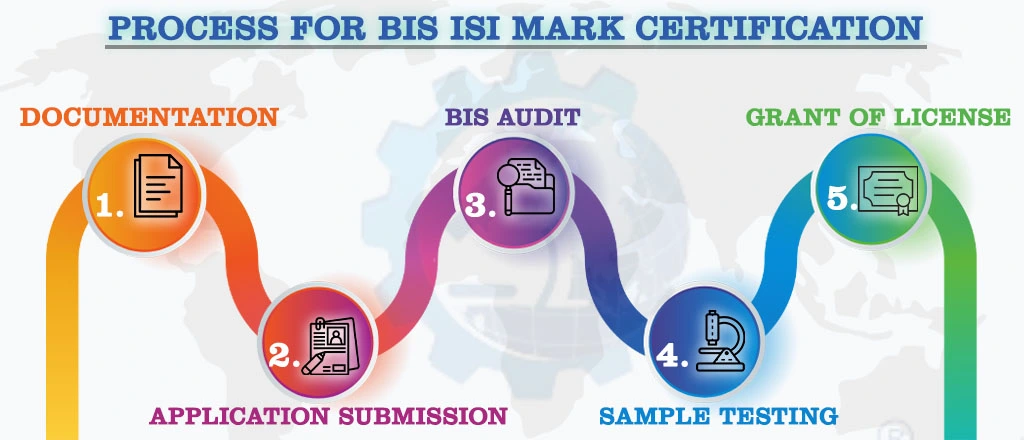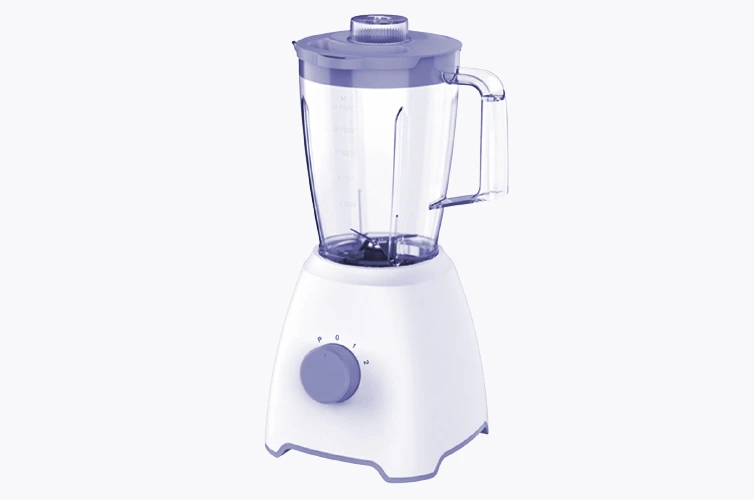BIS CERTIFICATION FOR DOMESTIC ELECTRIC FOOD MIXERS
IS 4250
In this competitive scenario, it isn't easy to survive in the market without a standard quality and certified product. BIS license may also be required to sell products in the Indian market.
To get BIS certification and produce a standard quality product, the manufacturer must ensure that their product must follow the specified Indian standard.
Let's take a closer look at IS 4250:1980 for domestic electric food-mixers.
This standard applies to electric motor-driven food-mixers (liquidizers and grinders) intended for home use and designed to operate at voltages not higher than 250 V. Multipurpose machines used in conjunction with specific accessories are also covered by this standard. This standard specifies the general and safety requirements for domestic electric food mixers used to mix liquids, create slurries or pulps of food, and crush dry foodstuffs. Determining the performance of food-mixers is also an important factor in determining the quality of food-mixers.
Appliances shall be classified into the following classes: Class I, Class II, and Class III.
In addition to the requirements of this standard, the provisions of IS: 302-1979* general requirements shall apply. The external finish used on metal components must be heat and moisture resistant. It must not be negatively affected by temperature changes that occur under normal operating conditions or during the endurance test. The external finish of the food-mixer body shall not get stained as a result of food-stuff spillage from the food-mixer bowl.
Appliances must be built in such a way that they perform securely in normal usage, posing no hazard to the user or the environment, even if carelessness occurs during normal use. This principle is achieved by meeting the relevant requirements described in this standard, and compliance is verified by running the whole applicable test. The applicable provisions of IS302 testing shall apply. Appliances must be built and enclosed in such a way that there is adequate protection against accidental contact with live parts.
Samples of each type of Domestic Electric Food Mixer must be tested in the following ways:
- Rated voltage
- Rated input (wattage)
- Function (grinder/ liquidizer/ centrifugal juicer)
- Rated Capacity (for a function)
- Normal Load (in terms of recipe)
- Time rating
- Class of appliance
- Insulation class
Tests
Some of the following tests shall be carried out for domestic electric food mixers.
- Protection against Electric Shock
- Input
- Electric Insulation and Leakage Current at Operating Temperature
- Provisions of Earthing
- Insulation Resistance & Electric Strength
- High Voltage
- Temp withstand test for Bowl
- Stability and Mechanical Hazards
- Test for control
- Starting
Labelling and marking shall be done in accordance with IS 4250: 1980. Conforming to the requirements of IS 4250: 1980, the product may be certified under the terms of the Bureau of Indian Standards Act, 2016 and the Rules and Regulations formulated thereunder, and the product may be marked with the Standard Mark (ISI Mark). The Manufacturer must obtain a BIS license from the Bureau of Indian Standards to use a standard mark (ISI Mark). The BIS grants a license based on a successful assessment of manufacturing infrastructure, quality control, testing capabilities, and production process.

NOTE:
For Detailed Information about the Procedure for BIS ISI Certification
Visit :
• ISI Mark Certification for Domestic Manufacturers• ISI Mark Certification for Foreign Manufacturers
Conclusion:
If a product falls under the scope of the BIS Conformity Assessment Scheme, All the manufacturers, importers, and foreign entities must obtain BIS ISI Certification. The Bureau may cancel the License if the product fails to meet certification requirements.
Aleph INDIA has been serving the industry as a single-window operator for all product regulatory compliance. We can assist importers or manufacturers in meeting all criteria for importing or selling a product in the Indian market.
International Audits & Participation
Testimonials
BIS REGISTRATION FOR ELECTRONIC & IT PRODUCT
In the era of globalization, world trade is growing rapidly and henceforth, Manufacturing and Import/Export businesses are also growing drastically...View More
BIS CERTIFICATE FOR FOREIGN MANUFACTURER
The Economy of India-the fastest developing economy on the globe with the capabilities that help it matches up with the biggest international...View More
PRODUCT CERTIFICATION SCHEME (ISI MARK) FOR DOMESTIC MANUFACTURERS
Anything a person buys from food to cars, clothes to electronics, branded to unnamed products there is always a question that wanders in one’s...View More
WIRELESS PLANNING AND COORDINATION (WPC)
WPC: Wireless means communication done from one point to another point without the wires and cables. Electromagnetic waves carry the ...View More
BUREAU OF ENERGY EFFICIENCY (BEE) CERTIFICATE
BEE CERTIFICATE: Energy is the future, and its conservation is the way of the bright future. Everyone claims the environment is important...View More
E-WASTE MANAGEMENT
E-waste is one of the world's fastest-growing trash streams. We currently manufacture almost 50 million tones of it each year...View More
Request a call back.
Would you like to speak to one of our Senior Technical advisers over the phone? Just submit your details and we’ll be in touch shortly. You can also email us if you would prefer.
BIS REGISTRATION FOR ELECTRONIC & IT PRODUCT
In the era of globalization, world trade is growing rapidly and henceforth, Manufacturing and Import/Export businesses are also growing drastically...View More
BIS CERTIFICATE FOR FOREIGN MANUFACTURER
The Economy of India-the fastest developing economy on the globe with the capabilities that help it matches up with the biggest international...View More
PRODUCT CERTIFICATION SCHEME (ISI MARK) FOR DOMESTIC MANUFACTURERS
Anything a person buys from food to cars, clothes to electronics, branded to unnamed products there is always a question that wanders in one’s...View More
WIRELESS PLANNING AND COORDINATION (WPC)
WPC: Wireless means communication done from one point to another point without the wires and cables. Electromagnetic waves carry the ...View More
BUREAU OF ENERGY EFFICIENCY (BEE) CERTIFICATE
BEE CERTIFICATE: Energy is the future, and its conservation is the way of the bright future. Everyone claims the environment is important...View More
E-WASTE MANAGEMENT
E-waste is one of the world's fastest-growing trash streams. We currently manufacture almost 50 million tones of it each year...View More
View All Services
Request a call back.
Would you like to speak to one of our Senior Technical advisers over the phone? Just submit your details and we’ll be in touch shortly. You can also email us if you would prefer.






























